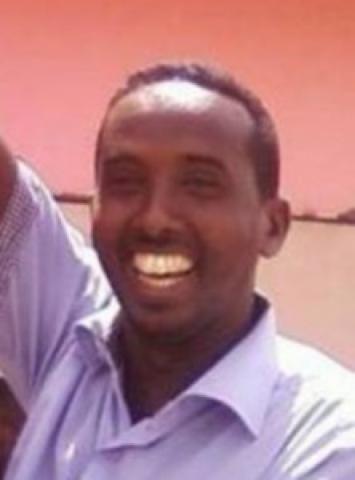
On 11 January 2016, the police arrested Mohamed Ibrahim Waïss, a 41-year-old independent journalist working for the Voice of Djibouti. Regularly harassed by the authorities due to his position statements, he has since then been detained without being allowed to see his family or lawyer, while the charges against him remain undetermined. Given the risks of ill-treatment and of a possible prison sentence that he faces, on 14 January Alkarama requested the United Nations Special Rapporteur on the promotion and protection of the right to Freedom of Opinion and Expression (SR FRDX) to call on the Djibouti authorities to release him.
In 2014, Alkarama had already seized the SR FRDX with the case of Mohamed, who had been arrested while covering a peaceful demonstration on 8 August. Ill-treated in detention, he had been charged with "participation in an illegal demonstration" before being discharged by the Criminal Court of Djibouti City and released on 22 August 2014.
This arrest was already not Mohamed's first, as, due to his political affiliation to the opposition coalition − the National Salvation Union (USN), a group regularly targeted by the authorities − and his work as an independent journalist, he had often been the subject of harassment and intimidation by the authorities. Thus, when on the morning of 11 January 2016, his vehicle was stopped by the police while he was driving in Djibouti City, history seemed to repeat itself, favoured by a particularly tense political situation, notably following the violent clashes that took place at the end of December 2015 between the security forces and the population and resulted in the death of dozens of people.
Told to get out of his car, he was then arrested for no apparent reason and taken to the police's Research and Documentation Section (SRD), where he was prevented from letting both his lawyer and family know of his arrest. When the latter later heard of his arrest from eye witnesses, they tried to visit him at the SRD to inquire about his health and the reasons for his detention , but they were refused access by the police. His lawyer, Zakaria Abdillahi Ali, was also forbidden to visit and could therefore not assist Mohamed during his attention, in breach of Article 14.3b of the International Covenant on Civil and Political Rights (ICCPR), ratified by Djibouti in 2002.
Eventually Mohamed was brought before the Prosecutor and placed under a detention warrant on 13 January, still without being able to benefit from the assistance of a lawyer. He has since then been transferred to the Gabode prison where he has not yet been able to receive visits from his family and at a time when the authorities' exact accusations are still unknown. "When you are an independent journalist in Djibouti, you are determined to be stopped by the authorities, at any time and without any reason, then detained without access to a lawyer or a doctor and without your family being allowed to see you. You are deprived of all your basic rights," said Maydane Okiye, a Djiboutian journalist who is also regularly targeted by the authorities.
In order to put an end to his arbitrary detention, Alkarama urgently requested the UN Special Rapporteur on the promotion and protection of the right to Freedom of Opinion and Expression (SR FRDX) to call on the Djibouti authorities to release Mohamed Ibrahim Waïss. The authorities must ensure that everyone can freely express their opinions in Djibouti without being at risk of intimidations or arrest and release all persons detained due to their political affiliations.
For more information or an interview, please contact the media team to media@alkarama.org (Dir: +41 22 734 1008).
